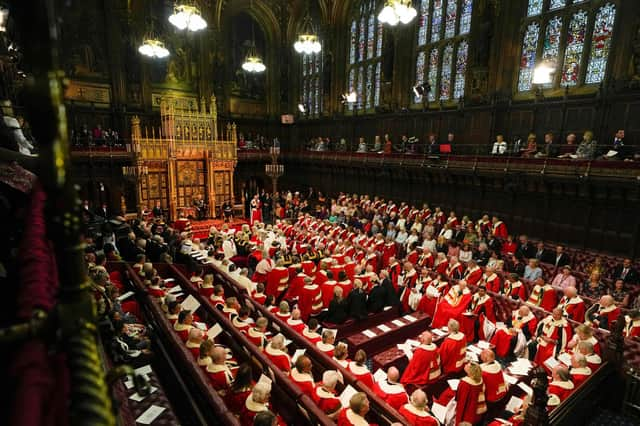Scottish independence: How abolishing the House of Lords would help boost support for the Union – Scotsman comment


However, it should be obvious to all democrats that the existence of this ridiculously bloated and unelected second chamber – which still includes people who inherited their positions – is a problem. Gordon Brown’s new report, A New Britain: Renewing our Democracy and Rebuilding our Economy, which proposes an elected assembly, is an attempt to solve it.
Arguments like the one by former Conservative Cabinet minister Simon Clarke, who said it would be “utter stupidity” to create an “elected upper house”, may struggle in the court of public opinion, given the blatant cronyism of the current ‘system'. With a number of recent appointments bringing the Lords’ image into further disrepute, those defending the status quo may find themselves backed into a difficult political corner.
Advertisement
Hide AdAdvertisement
Hide AdClarke claimed that it would lead to the political gridlock seen in the US when the Senate, House and presidency are held by different parties. However, the problem there is the division of powers, not too much democracy.
Brown’s report stresses the importance of the primacy of the Commons, with the main new role for the envisaged Assembly of the Nations and Regions as a defender of the constitution and devolution. Boris Johnson’s illegal suspension of parliament for political reasons during the Brexit debate shows one reason why this is necessary. If elected by proportional representation, the chamber would also help provide a better counter-balance to the “elected dictatorship” that can sometimes be seen in the Commons on the basis of support from about 40 per cent of the electorate.
On the Union, the report’s strengthening of devolved powers may help convince some voters in Scotland who might otherwise back independence to stick with the UK. The replacement of the Lords with a democratic assembly would also remove a source of discontent with Westminster. They may usually keep a low-profile, but the presence of unelected peers at the heart of power sends out a steady, insidious message that democracy in the UK is not all that it should be.
If the so-called ‘Mother of Parliaments' is a paragon of democratic virtue, it will be easier to keep her family together.
Comments
Want to join the conversation? Please or to comment on this article.